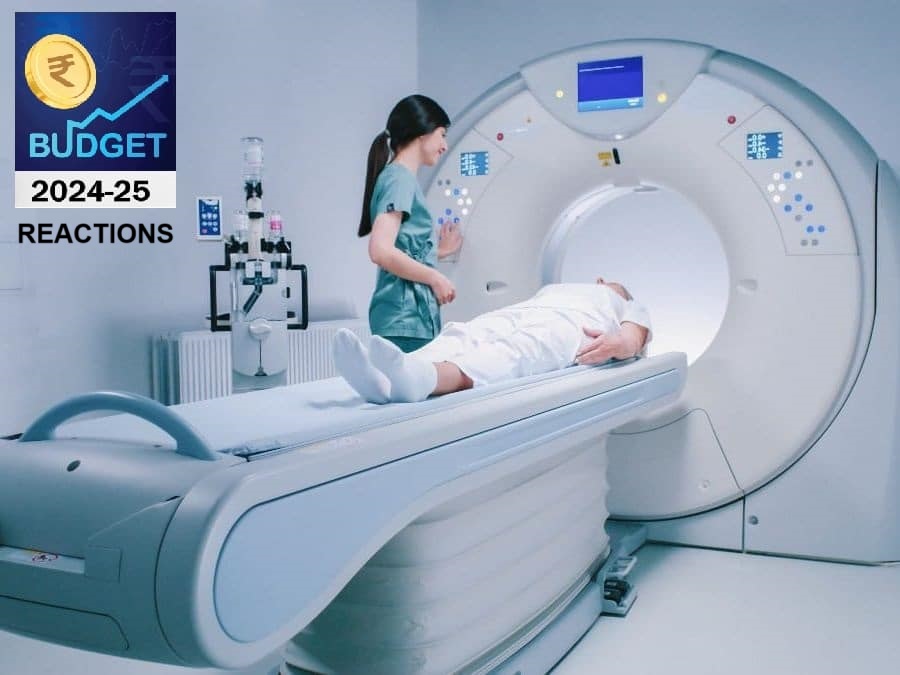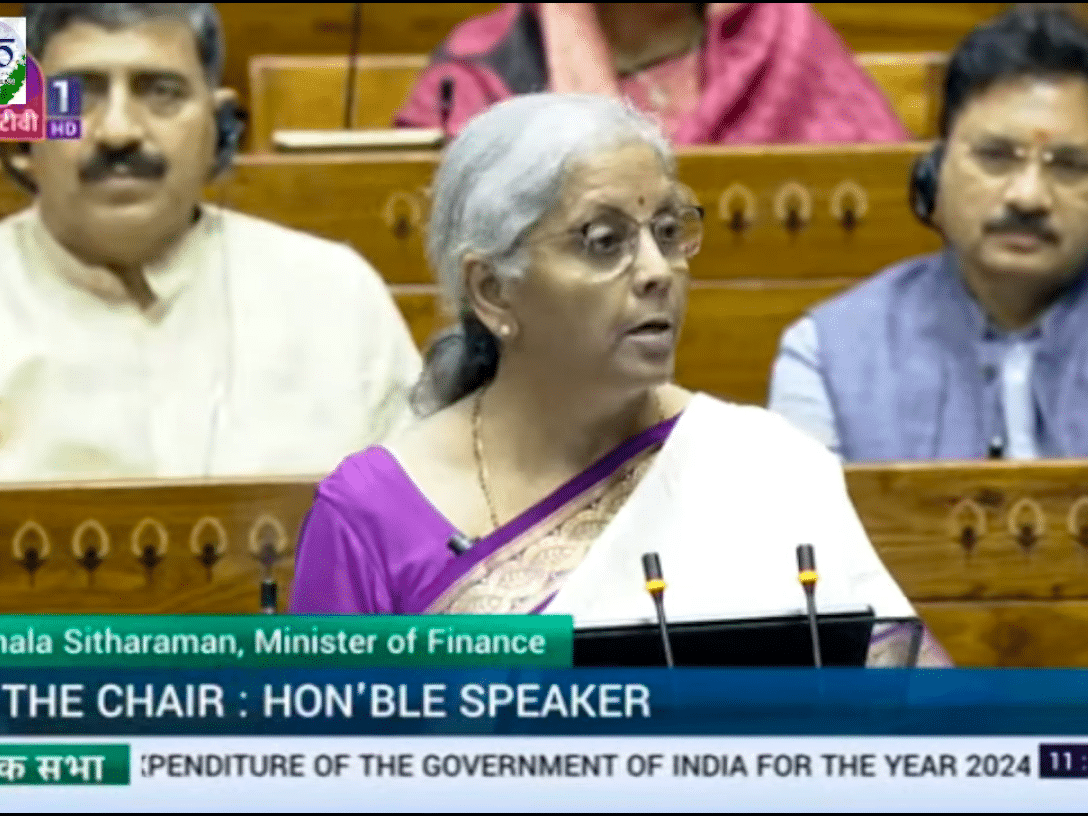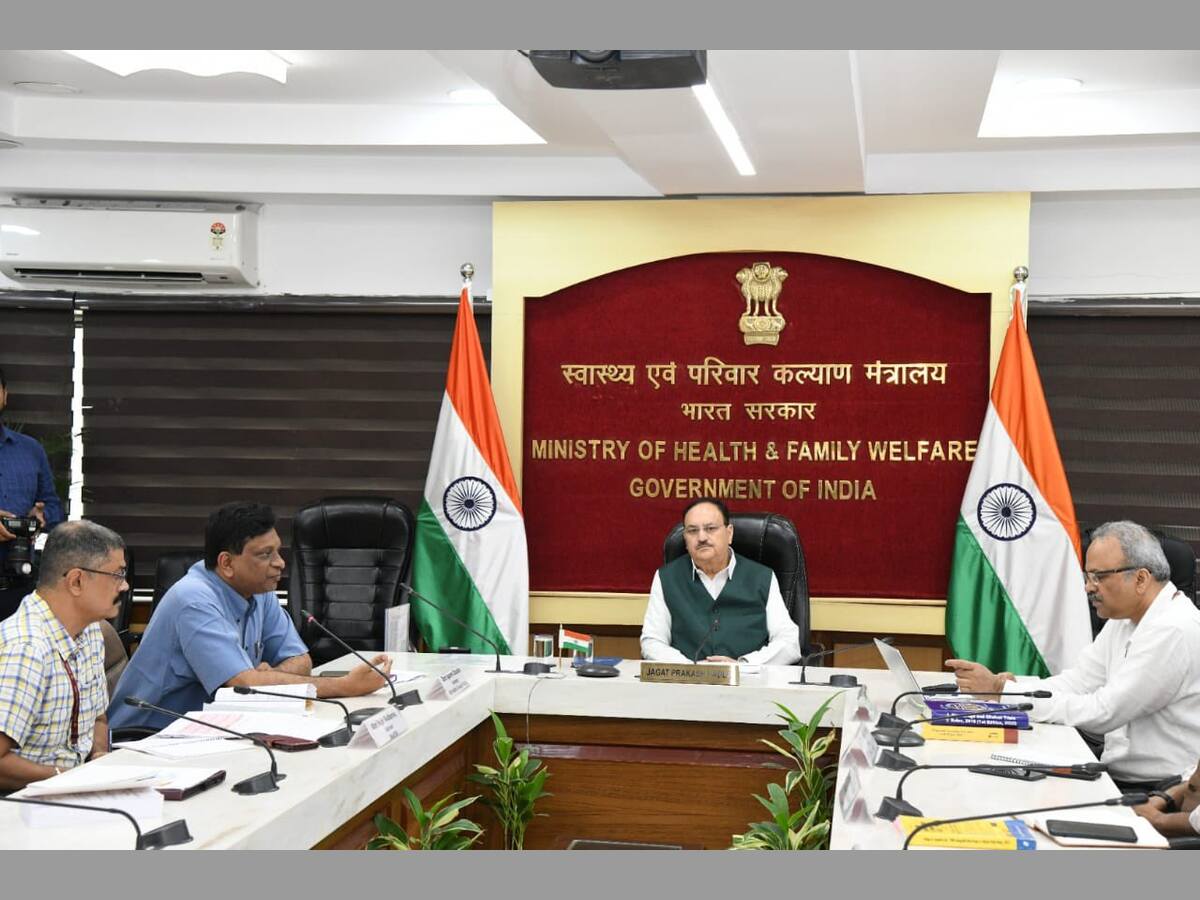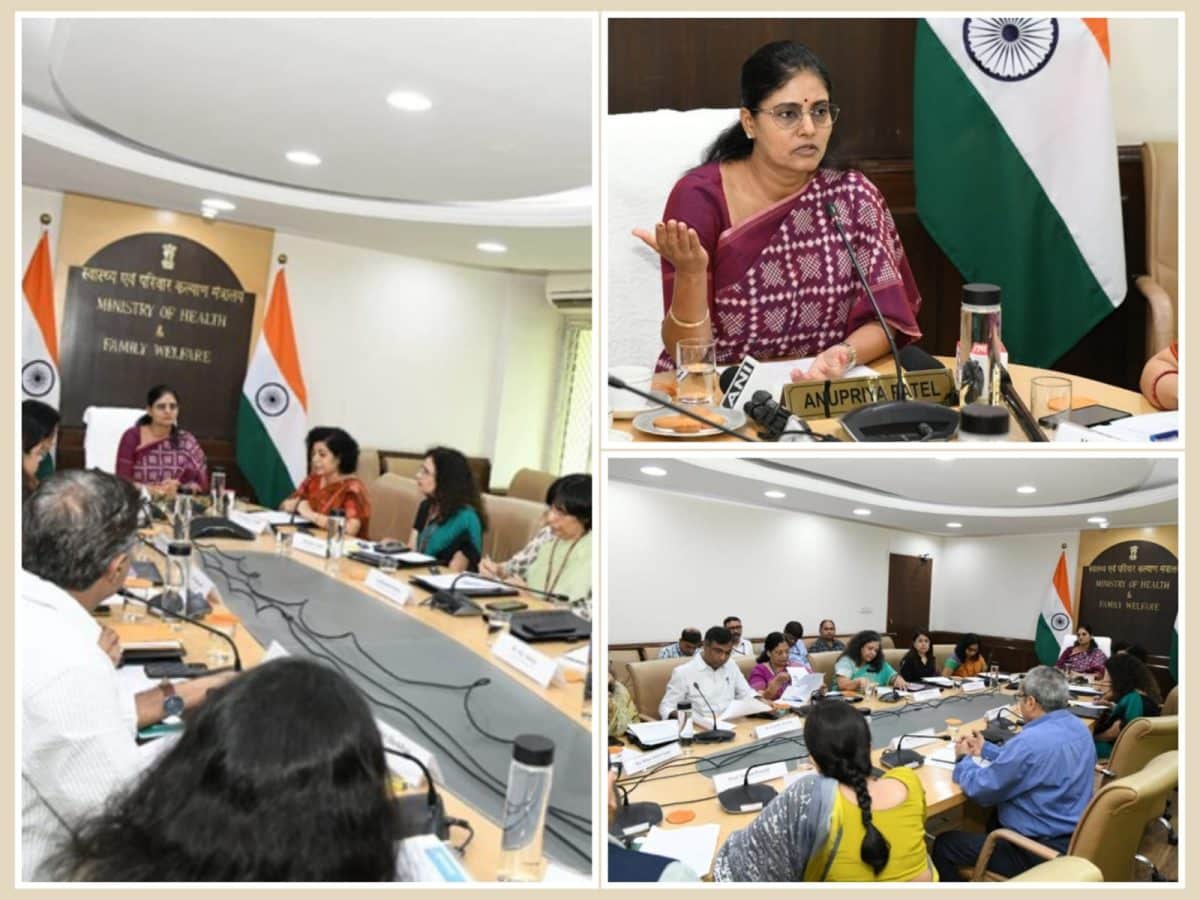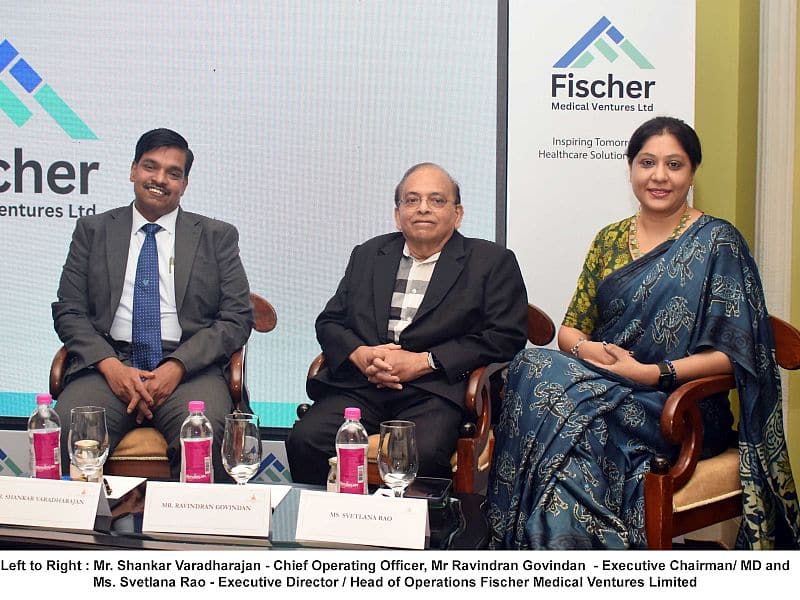Many hits but a few misses, has been the story of India’s Union Budget 2024-25, according to leaders from the HealthTech and MedTech sectors. A common theme amongst leaders was appreciation for the government’s increased investment in research and development (R&D).
Sandeep Nailwal of Blockchain for Impact commended the establishment of the Anusandhan National Research Fund and the ₹1 lakh crore pool for private sector research, believing it will “accelerate the commercialization of new medical technologies and treatments. Vishal Goel of Rx Propellant echoed this sentiment, calling R&D a “priority and the new fund a “shot in the arm for the pharmaceutical sector. Anish Bafna of Healthium Medtech was particularly enthusiastic, stating the initiatives will “encourage the spirit of self-reliance, promote talent and generate indigenous solutions in healthcare.
Leaders also welcomed measures aimed at boosting domestic manufacturing of medical equipment. Priyadarshi Mohapatra of CureBay lauded the changes in customs duty for X-ray tubes and flat panel detectors, believing they will “drive innovation, enhance healthcare infrastructure, and ensure that advanced medical services reach underserved regions. Mahesh Kumar Rathor of Medprime Technologies saw this as a “positive shift fostering innovation in the MedTech sector, creating a more “conducive environment for startups.
Several leaders highlighted the budget’s focus on improving healthcare accessibility and affordability. Priyadarshi Mohapatra of CureBay appreciated the government’s focus on broadening access, particularly with the development of health-focused DPI applications. Anish Bafna of Healthium Medtech applauded the exemption of custom duties on cancer medication, calling it “patient centricity.
Tetsuya Yamada of OMRON Healthcare India commended the increased allocation for health and wellness, coupled with the emphasis on digital health infrastructure and telemedicine, believing it will “boost accessibility and efficiency of healthcare services.
However, some leaders expressed concerns about areas the budget could have addressed more effectively. Dr Suman Katragadda of Heaps.ai felt the budget overlooked the importance of healthcare, highlighting the high out-of-pocket expenditures burdening Indian families. He called for reforms within the health insurance sector to improve coverage. Vikram Thaploo of Apollo Hospitals felt the budget should have placed a greater focus on expanding digital health technologies and increasing GDP spending on healthcare.
Overall, the Union Budget 2024-25 has been met with a mix of reactions from HealthTech and MedTech leaders. While there is appreciation for the increased investment in R&D, support for domestic manufacturing, and focus on accessibility and affordability, some leaders believe the budget could have done more to address areas like healthcare insurance and digital health expansion.
::::::::::::::::::::::::::::
Full text of reactions to Union Budget 2024-25:
Abhishek Sinha, Co-Founder, HealSpan
A highly forward-looking Union Budget 2024 emphasizes employment generation, urban and rural sanitation, and infrastructure development. The manufacturing sector, particularly through SMB players, has received a significant boost from this budget.
The revised mining policy on rare earth metals will have a dual impact on the renewable energy sector and electronics manufacturing in the country. We extend our gratitude to the Finance Minister for further simplifying income tax and abolishing the Angel Tax.
:::::::::::::::::::::::::::::::::::::::::::
Deepanker Mahajan, Founder and CEO, CoverYou
I am optimistic about the potential reforms in the 2024 budget. The common man eagerly awaits measures to make life and health insurance more affordable, aligning with the IRDAI’s ambitious goal of ‘Insurance for All by 2047.’
To truly drive this vision, we must address the unchanged deduction limit on health insurance premiums under Section 80D, which has not been revised for nine years despite soaring healthcare costs. Given that India surpasses its South Asian peers with a medical inflation rate of 14%, linking the deduction limit to inflation and revising it periodically will offer necessary financial relief and promote wider adoption of health insurance.
Moreover, extending these benefits to the New Tax regime and reducing the 18% GST on health insurance could significantly enhance its accessibility. These steps are not just recommendations but vital actions that can boost the insurance industry and provide robust coverage for our doctors and the broader population. We hope the Budget reflects these critical needs and paves the way for a more insured and healthier India.
:::::::::::::::::::::::::::::::::::::::::::
Dr Ajay Rana Founder and Director, ILAMED and Dermalyn Aesthetics
The Budget’s focus on healthcare is a step in the right direction, but I was hoping for more targeted allocations towards preventive care and public health initiatives. As a dermatologist and aesthetic physician, I see firsthand the impact of skin cancer and other skin-related diseases on individuals and families. Increased funding for awareness campaigns, early detection programs, and research into skin health would have been a welcome move. Nevertheless, I appreciate the government’s commitment to healthcare and look forward to seeing the positive impact of these initiatives on patient care
:::::::::::::::::::::::::::::::::::::::::::
Dr Chandrika Kambam, Founder and Managing Director, Anastomos
The Union Budget is a significant stride towards enhancing job opportunities, boosting HealthTech and promoting women participation in the workforce. The focus on women announced in this budget, is a huge step towards empowering women to take the reins and actively participate in the economic, social, and political spheres, thereby fostering gender equality and inclusive growth.
The enhancement of the e-Shram portal will democratize access to training resources and connect job aspirants with potential employers, ensuring that individuals from all regions can upskill and secure better job opportunities. This Budget lays a strong foundation for building a future-ready workforce equipped with the skills needed to thrive in a rapidly evolving job market. The Finance Minister’s roadmap aligns perfectly with our mission to empower women, advance HealthTech, and create sustainable job opportunities.
:::::::::::::::::::::::::::::::::::::::::::
Dr Suman Katragadda, CEO of Heaps.ai
The Union Government in the Budget 2024-25 has overlooked the critical importance of healthcare in the Budget announcement. According to the Economic Survey 2023-24, India has one of the world’s highest out-of-pocket expenditures resulting in poor households being pushed below the poverty line. It is concerning that there were no specific measures for the healthcare sector. While infrastructure growth is vital for any country, it is equally important to address the challenges within the health insurance sector.
Statistics show that Nearly 400 million individuals in India have zero access to health insurance. These figures are alarming, and the government of India should work towards reforms that will benefit the Healthcare Industry as a whole.
Furthermore, there is a need to address the growing importance of care management services in India. The burden of hospitalizations and repeat hospitalization takes a toll on the physical and psychological health of a person, the government should work towards improving care coordination and care management services in the country.
:::::::::::::::::::::::::::::::::::::::::::
Sandeep Nailwal, Founder of Blockchain for Impact.
As a philanthropic organization dedicated to healthcare research, we appreciate the Union Budget’s focus on advancing health and innovation. With ₹89,287 crores of annual expense earmarked for healthcare, highlights the government’s focus on enhancing our nation’s health infrastructure. Investing in research is crucial to ensuring a robust and resilient ecosystem is in place. The introduction of the Anusandhan National Research Fund, with a focus on basic research and prototype development, is a significant step forward. The establishment of a ₹1 lakh crores financing pool for private sector-driven research will accelerate the commercialization of new medical technologies and treatments.
The increase in research and development funding, with ₹1,200 crores allocated for 2024-25, up from ₹840 crores in 2023-24, demonstrates a strong commitment to innovation. The additional ₹2,143 crores towards the PLI scheme for the pharma sector will support the development of essential medicines, which is vital for reducing healthcare costs over time.
We also commend the allocation of over ₹3 lakh crores for schemes benefiting women and girls and the Pradhan Mantri Janjatiya Unnat Gram Abhiyan to improve the socio-economic conditions of tribal communities. These efforts will contribute to better health outcomes across diverse populations.
Lastly, the simplification of FDIs and overseas investments, alongside improvements in data governance, will enhance our ability to attract international collaborations and manage health data effectively. The streamlining of charity regulations and TDS will also facilitate more efficient philanthropic efforts.
By investing in research and reducing the burden of disease, we can make a meaningful impact on healthcare costs and improve overall public health. We are excited to support these initiatives and contribute to a healthier, more equitable society.
:::::::::::::::::::::::::::::::::::::::::::
Priyadarshi Mohapatra, Founder and CEO, CureBay
We appreciate the government’s focus on broadening access to healthcare. CureBay is committed to making healthcare accessible in Tier-2 and Tier 3 cities, and the development of DPI applications for health at a population scale aligns perfectly with our mission. The proposed exemptions for cancer treatment medicines and the changes in customs duty for X-ray tubes and flat panel detectors under the phased manufacturing program are significant steps towards improving healthcare quality and accessibility.
These initiatives will drive innovation, enhance healthcare infrastructure, and ensure that advanced medical services reach underserved regions. This Budget represents a major stride towards a healthier, more equitable India.
:::::::::::::::::::::::::::::::::::::::::::
Saurav Kasera, Co-Founder and CEO, Clirnet and DocTube
The Union Budget 2024-25 presents several promising initiatives for the digital sector. The abolition of the angel tax is a significant step that will foster innovation and support start-ups. The emphasis on research and development, particularly through the Anusandhan National Research Fund, will drive technological advancements. The government’s commitment to developing Digital Public Infrastructure (DPI) will enhance service delivery and support the integration of healthcare. Additionally, policy support for MSMEs and focus on skilling will benefit by providing access to credit and preparing the workforce for future demands.
:::::::::::::::::::::::::::::::::::::::::::
Dr Vaibhav Kapoor, Co-founder, Pristyn Care
The Union Budget for 2024-25 is a positive growth step and we welcome it wholeheartedly. We are glad to see that efforts have been made to back education and skills development such as by revising the Model Skill Loan Scheme enabling 25,000 students per annum and giving E-vouchers for loans up to Rs 10 lakh to one lakh students yearly. The new package announced today includes five schemes with a budget of Rs 2 lakh crore aimed at generating employment opportunities and enhancing skill levels of 4.1 crores youth over the next five years.
This year’s allotment of Rs 1.48 lakh crore towards education, employment and skilling demonstrates strong commitment in these areas. These will help young people to have better education, improve the education system through investing heavily in it and create many job opportunities. This whole approach will make our future brighter, healthier and more prosperous for everybody.
:::::::::::::::::::::::::::::::::::::::::::
Vikram Thaploo, CEO – Telehealth, Apollo Hospitals Enterprises
The Union Budget’s strong fiscal support for infrastructure is encouraging, with an impressive ₹11.11 lakh crores allocated for capital expenditure. The ₹2.66 lakh crores allocated for rural development is also a positive step toward improving healthcare accessibility and infrastructure in these regions. The earlier interim Budget also laid significant groundwork by allocating ₹90,171 crores to the healthcare sector for 2024-25, a notable increase from ₹79,221 crores in the previous year.
However, a critical area of focus for the future in the Union Budget should have been the expansion of digital health technologies. Furthermore, increasing GDP spending on healthcare to 2.5% could have significantly advanced digital health services. While the current Budget allocations and initiatives are promising, additional support for digital health technologies would have significantly bolstered our healthcare infrastructure. Additional investments in digital health could have further helped bridge the gap between urban and rural healthcare, enhance efficiency, and reduce costs.
:::::::::::::::::::::::::::::::::::::::::::
Vishal Goel, MD, Rx Propellant
We are happy to see innovation, research and development emerging as a priority for the government while planning budgetary allocation for the coming years. The private sector has been playing an important role in driving the innovation capabilities in India and the announcement to operationalize the Anusandhan National Research Fund will be a shot in the arm.
This will be especially beneficial for the pharmaceutical sector as companies are increasingly looking to shift their R&D capabilities to India, evident by the rise in the number of global capacity centres (GCCs) in India. The announcement to rationalize GST is likely to provide further boost to this growth even as we await details of this welcome move.
:::::::::::::::::::::::::::::::::::::::::::
Anish Bafna, CEO and MD, Healthium Medtech
The Union Budget 2024-25 sets the foundation for our nation’s unrelenting pursuit towards Viksit Bharat 2047. The announced exemption of custom duties on the three additional cancer formulations is an industry welcoming move towards patient centricity, easing the financial and socio-economic burden of the disease on patients.
The detailed changes in basic custom duties on medical equipment like X-rays and flat panel detectors under the government’s phased manufacturing program will go a long way to bolster the domestic production capacity for local players. Such interventions from the government will propel conducive policymaking and enhance affordability and accessibility in healthcare, while supporting manufacturing and innovation in the medical sector.
The increased impetus on job creation and central skilling programs will boost productivity and excellence in the workforce for developing sectors like manufacturing and MSMEs. Tailored initiatives like Anusandhan National Research Fund for powering innovation, research and prototype development will encourage the spirit of self-reliance, promote talent and generate indigenous solutions in healthcare.
The financial outlay of ₹1 lakh crores will further spur private sector-driven research and innovation at a commercial scale. Moreover, the ₹1,000 crores fund announced to boost India’s space economy will encourage private innovation, advance our Atmanirbharta initiatives and benefit 180+ startups, and more incubated applications.
:::::::::::::::::::::::::::::::::::::::::
Iftekhar Ahmed, Co-founder and CEO, MEXPLE Healthcare
We admire and appreciate our government for significant allotment of Budget for healthcare sector. With new allocation, spending and highlighting healthcare as priority sector – government is serious about its citizens.
:::::::::::::::::::::::::::::::::::::::::
Mahesh Kumar Rathor, Co-founder, Medprime Technologies
The government’s increased allocation for the healthcare sector and the proposed changes in the basic customs duty for X-ray tubes and flat panel detectors signal a positive shift towards fostering innovation in the medical technology sector.
As a MedTech startup, we see this as an opportunity to accelerate our efforts in developing cutting-edge solutions that can revolutionize patient care. The focus on synchronizing customs duties with domestic capacity addition under the phased manufacturing program will undoubtedly create a more conducive environment for startups like ours to thrive and contribute meaningfully to India’s healthcare ecosystem.
The abolition of angel tax is a significant boost for startups across sectors. This decision will likely encourage more investment in innovative companies, providing crucial early-stage funding.
:::::::::::::::::::::::::::::::::::::::::
Tetsuya Yamada, MD, OMRON Healthcare India
We commend the healthcare initiatives outlined in the Union Budget. The increased allocation for health and wellness, coupled with a strong emphasis on digital health infrastructure and telemedicine, is a significant step towards boosting accessibility and efficiency of healthcare services through digital means.
OMRON Healthcare has long been dedicated to empowering individuals with the tools needed to monitor and manage their health effectively. The proposed Budget’s support for innovations in healthcare aligns perfectly with our commitment to provide easily accessible and user-friendly health monitoring solutions. We believe that these measures will not only improve the quality of healthcare but also foster a culture of proactive health management among citizens.
We look forward to contributing to this transformative journey and supporting the government’s vision of a healthier, more resilient India.

